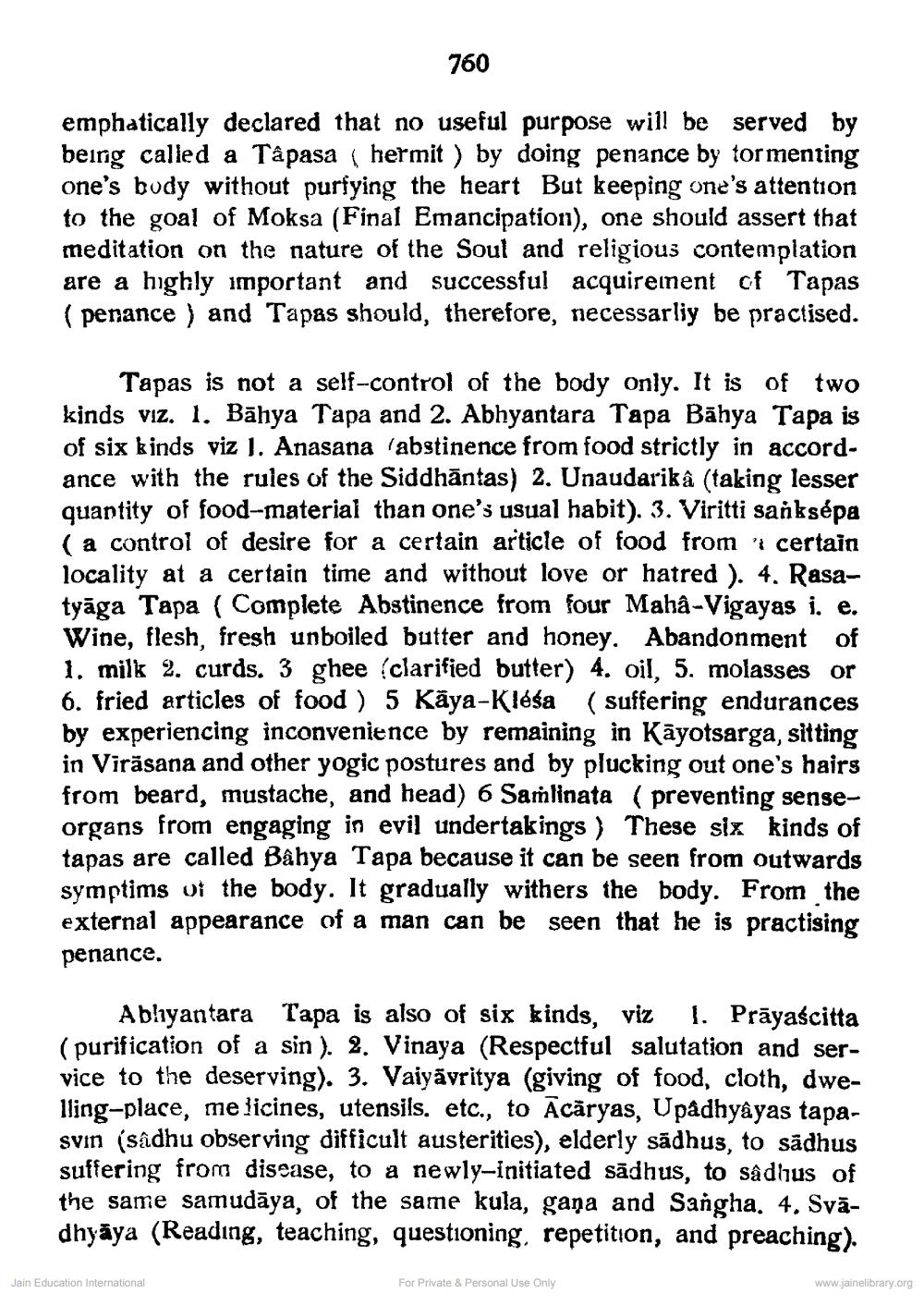________________
760
emphatically declared that no useful purpose will be served by being called a Tâpasa ( hermit ) by doing penance by tormenting one's body without purfying the heart But keeping one's attention to the goal of Moksa (Final Emancipation), one should assert that meditation on the nature of the Soul and religious contemplation are a highly important and successful acquireinent of Tapas ( penance ) and Tapas should, therefore, necessarliy be practised.
Tapas is not a self-control of the body only. It is of two kinds viz. 1. Bāhya Tapa and 2. Abhyantara Tapa Bāhya Tapa is of six kinds viz J. Anasana (abstinence from food strictly in accordance with the rules of the Siddhāntas) 2. Unaudarikâ (taking lesser quantity of food-material than one's usual habit). 3. Viritti sanksépa (a control of desire for a certain article of food from ' certain locality at a certain time and without love or hatred ). 4. Rasatyāga Tapa ( Complete Abstinence from four Maha-Vigayas i. e. Wine, flesh, fresh unboiled butter and honey. Abandonment of 1. milk 2. curds. 3 ghee (clarified butter) 4. oil, 5. molasses or 6. fried articles of food ) 5 Käya-Klesa ( suffering endurances by experiencing inconvenience by remaining in Kāyotsarga, sitting in Virāsana and other yogic postures and by plucking out one's hairs from beard, mustache, and head) 6 Samlinata (preventing senseorgans from engaging in evil undertakings) These six kinds of tapas are called Båhya Tapa because it can be seen from outwards symptims of the body. It gradually withers the body. From the external appearance of a man can be seen that he is practising penance.
Abliyantara Tapa is also of six kinds, viz 1. Prāyaścitta (purification of a sin ). 2. Vinaya (Respectful salutation and service to the deserving). 3. Vaiyavritya (giving of food, cloth, dwelling-place, melicines, utensils, etc., to Ācāryas, Upadhyâyas tapasvin (sâdhu observing difficult austerities), elderly sādhus, to sådhus suffering from disease, to a newly-initiated sādhus, to sâdhus of the same samudāya, of the same kula, gana and Sangha. 4. Svādhyāya (Reading, teaching, questioning, repetition, and preaching).
Jain Education International
For Private & Personal Use Only
www.jainelibrary.org




